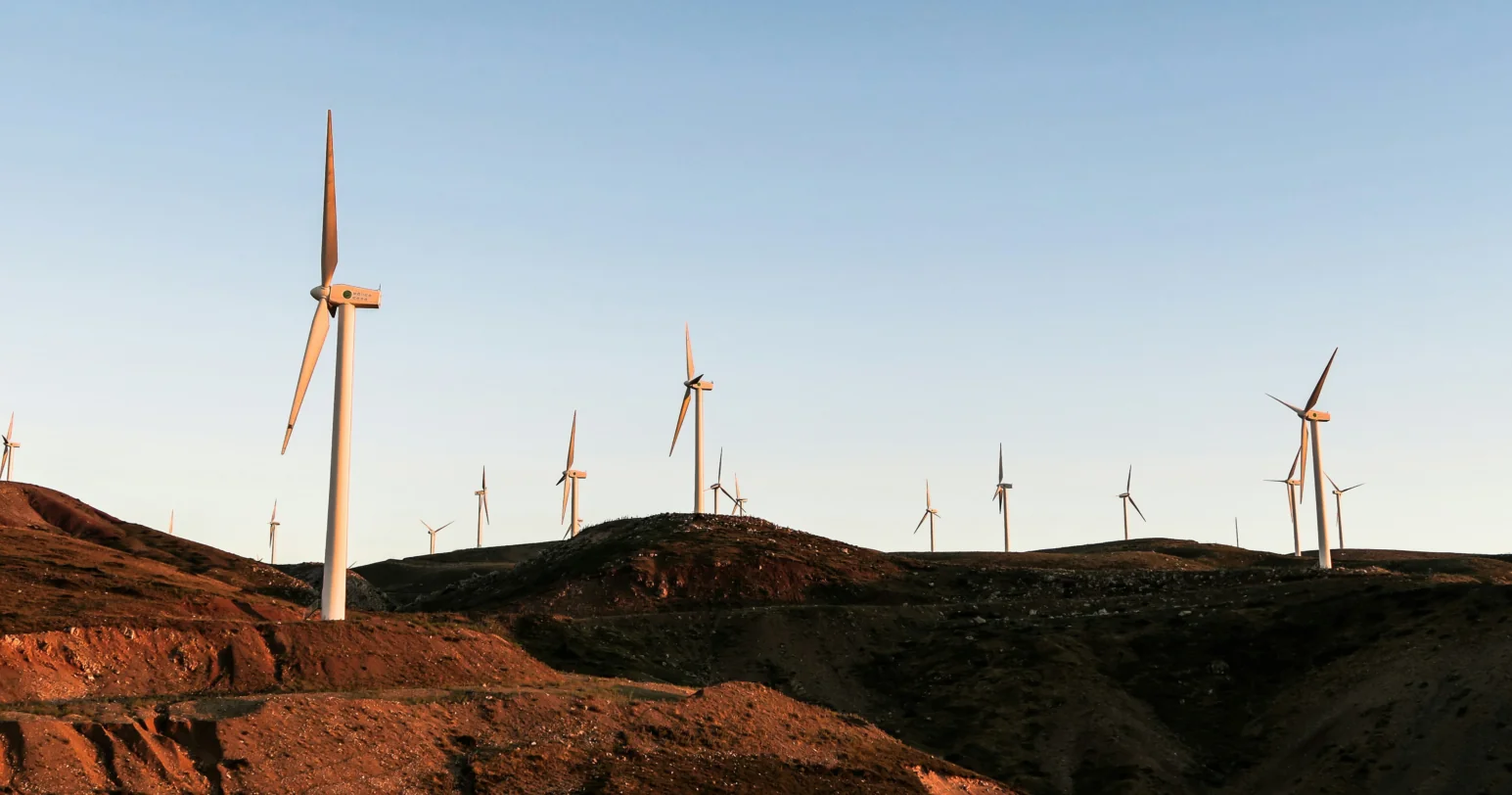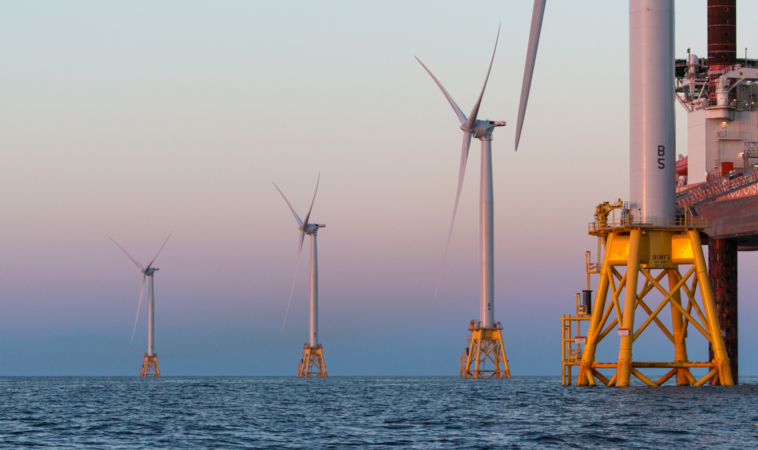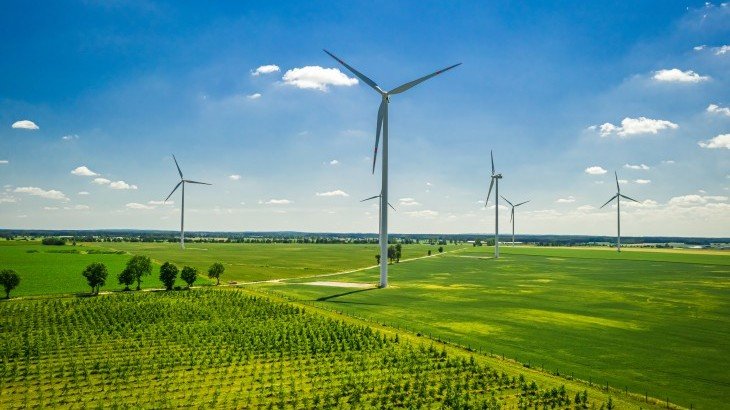
By Katherine Poseidon at Bloomberg NEF
Poland, Czechia, Romania and Bulgaria are the European Union’s most coal-reliant nations that have yet to commit to a plan to phase out the fuel. However, to lower the cost of their power systems, these countries could significantly accelerate the pace of transition from coal to clean energy in the next decade, according to a report released on July 6 by BloombergNEF, with the support of Bloomberg Philanthropies.

Following the least-cost power sector development path outlined in the report would allow these four countries to halve their power sector emissions, attract 45 billion euros in clean energy investment and create 45,000 jobs, while supporting Europe’s green recovery and climate efforts.
BNEF’s report focuses on Poland, Czechia, Romania and Bulgaria, where coal accounts for a significantly higher share of electricity generation than the EU average of 19%.
Figure 1. Capacity mix makeup

These four countries are currently responsible for a quarter of EU power sector emissions. The EU’s ambitious climate goals in the coming decade will not be achievable without their contribution. Poland, Czechia, Romania and Bulgaria can play a significant role in the EU’s energy transition through emission reduction associated with phasing out coal, while also growing their own economies.
In order to identify where emission reduction opportunities lie, BNEF’s least-cost scenario models an optimized energy mix for Poland, Czechia, Romania and Bulgaria through 2030. The modelling reflects current market and regulatory conditions and assumes that no policy changes will be introduced, instead looking at system cost, allowing the power mix to evolve over the next decade. The resulting scenario is based only on the existing pipeline of projects, and current EU Emission Trading System regulations.
Economics alone are piling pressure on coal assets, leading to the closure of half of the existing coal capacity by 2030 in the least-cost scenario. Were the EU to adopt more ambitious targets, and reform the current EU ETS accordingly, then closures are likely to happen much faster.
The share of renewables generation delivered by this least-cost scenario far exceeds what the countries are currently aiming for. By 2030, Poland, Czechia, Romania and Bulgaria could reach a 47% share of renewables generation, compared to 31% in the scenarios laid out in their National Energy and Climate Plans.
Figure 2. Electricity generation mix in the least-cost scenario
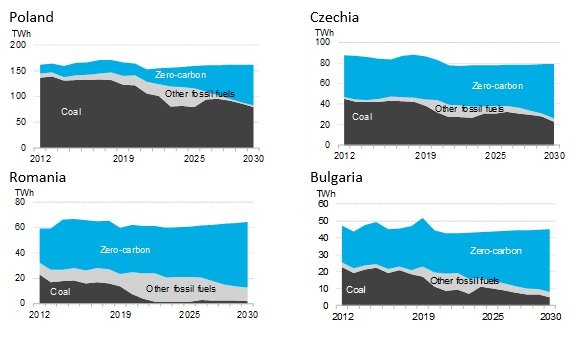
The risk of adhering to lower targets and failing to adopt a coal phase-out plan is significant. Clear policy making and target setting will be necessary to mobilize the nearly 50 billion euros of renewables investment required to bring more than 50GW of clean energy online.
Coal is increasingly uneconomic, so by continuing to rely on the fuel, utilities, public finance and taxpayers will bear unnecessary financial burdens. The performance of Polish utilities reflects the pressure on coal, as share prices have declined over the last several years due to the companies’ exposure to the fuel, compared to market peers.
Figure 3. Share price of Poland’s top four utilities, compared with market peers
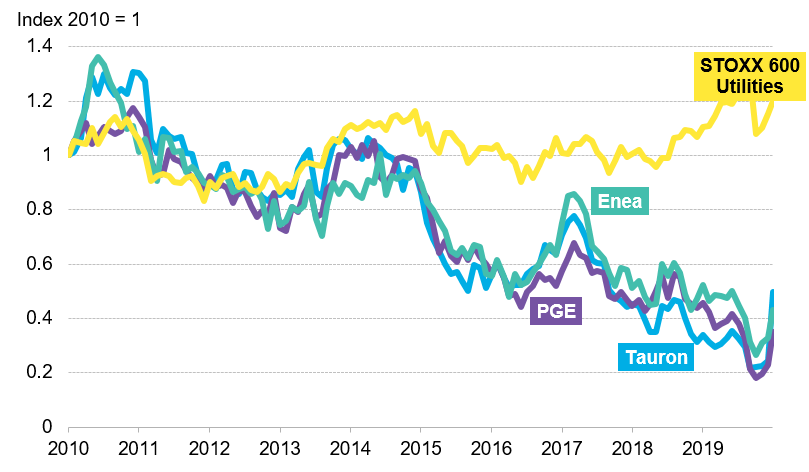
The failure to plan for a coal phase-out is also to the disadvantage of communities that rely on the fuel. The socioeconomic impact of coal closures laid out in BNEF’s least-cost scenario is significant. With further closures likely to be needed to meet the EU’s higher 2030 climate target, policy planning will be essential to ensure that coal regions are not left behind.
EU member states that adopt more ambitious 2030 plans, including for coal phase-outs, can make use of EU support for mitigating the socioeconomic effects of coal closures. Poland, Czechia, Romania and Bulgaria are all poised to benefit from the EU’s Just Transition Mechanism. However, to receive any of the almost 18 billion euros in direct funding, these member states will need to develop plans in line with EU decarbonization goals. This will very likely require a coal phase-out plan.
Frans Timmermans, the European Commission’s Executive Vice President, has emphasized the need for a just transition, speaking at the report launch.:
“To become the world’s first climate neutral continent, we have to turn the page on coal. Letting go of an industry that has provided jobs for decades will not be an easy process but Europe is ready to support it. Poland, Czechia, Bulgaria, and Romania can become leaders in Just Transition and switch from coal to clean while contributing to industrial leadership of Europe.”
Never before have the interests of Europe’s coal regions better aligned with the common goals of the EU. The decarbonization of Europe’s remaining coal-reliant power systems creates a need for billions of euros of clean energy investment, which can also spur the green recovery and bring the EU closer to climate neutrality.
The EU has the opportunity to act as a global leader in delivering a ‘just transition’ within its most coal-reliant member states. Lessons from moving away from coal, while mitigating the socioeconomic impact, can serve as an example for other countries and regions.



